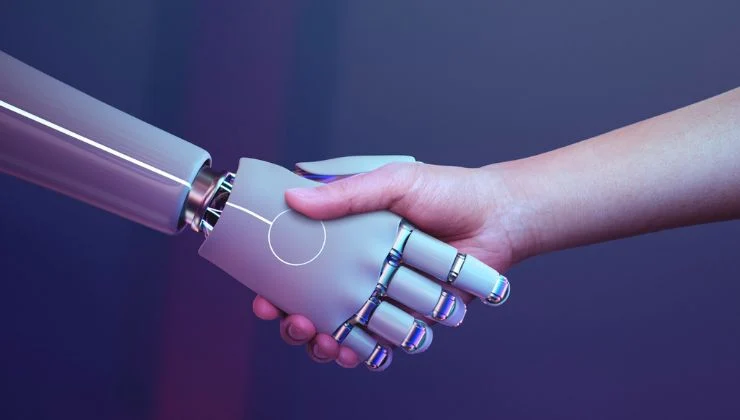In a context of ever-increasing competition among educational institutions and ever-increasing student expectations, educational marketing faces the challenge of connecting with diverse, demanding, and digital audiences. At the same time, the rise of online education, the expansion of hybrid models, and the need to build more meaningful relationships with potential students have driven a profound transformation in the way universities, colleges, and academies communicate their value proposition.
In this scenario, AI in educational marketing is a game-changer, not only allowing us to do more with fewer resources but also redefining what’s possible. In this article, we explore how AI is being applied to marketing in the educational sector, the benefits it can have for teams, and provide real-life examples of how some educational institutions are using it.
How AI is used in Educational Marketing
1. Chatbots and virtual assistants
Many schools have incorporated intelligent chatbots into their websites to instantly answer frequently asked questions about programs, admission requirements, scholarships, or academic calendars. These conversational assistants not only improve the user experience but also free up staff from repetitive tasks and capture leads during off-duty hours.

2. Smart segmentation and microtargeting
AI allows for the analysis of large volumes of demographic, geographic, and behavioural data to create more precise segmentations. Campaigns can now target highly specific audiences instead of broad profiles. This allows for much greater personalisation of ads on Google, social media, or email marketing, thereby increasing conversion rates with less advertising investment.
3. Predictive lead scoring
AI in educational marketing is also being used to implement lead scoring systems, which predict which prospects are most likely to enrol. The system analyses the online behaviour of the potential student or family (website visits, clicks, completed forms, etc.) and assigns a score that allows for prioritising sales efforts and adjusting the sales funnel.
This use of artificial intelligence in education is key for universities that receive thousands of information requests and need to identify the most qualified leads.
4. Automated content generation
Generative AI tools such as ChatGPT and Copy.ai are being used by university marketing departments to create educational program descriptions, personalised emails, blog posts, and advertisements. The process saves professionals significant time while maintaining a consistent institutional voice. Some academies even use AI to generate content in different languages and adapt the message to international audiences.
5. Predictive analysis of student behavior
Artificial intelligence can anticipate behavioral patterns (registration abandonment, indecision, loss of interest, etc.) and trigger automated marketing actions at the right time, such as reminders, reinforcement content, personalized testimonials, etc.
6. Optimizing paid campaigns with AI in educational marketing
As a marketing and in-company training agency, we work with advertising platforms and have seen how they are already integrating artificial intelligence into their functionalities, offering the technology the ability to optimise budgets in real time or identify which creatives perform best, among many other things.
7. Sentiment analysis on social networks
Some universities and academies are using AI to analyse comments on social media, forums, and opinion platforms in order to:
- Identify the institution’s or specific programs’ positive or negative perceptions.
- Identify areas for improvement in communication.
- Identify brand ambassadors among current or alumni students.
- Identify trends in the education sector, such as mobile learning.
8. Benefits of AI in educational marketing
- Greater personalisation and precision in segmentation, resulting in much more relevant campaigns, reduced cost per lead, and increased engagement across emails, ads, and organic content.
- Save time by automating repetitive tasks, freeing up marketing teams to focus on strategic tasks.
- Improve lead conversion through the ability to analyse data in real time and predict user behaviour.
- Better data-driven decisions, as AI transforms large volumes of disparate data into actionable insights that enable more strategic decisions.
- Improved user experience from the first contact, thanks to chatbots, personalised emails, and websites.





